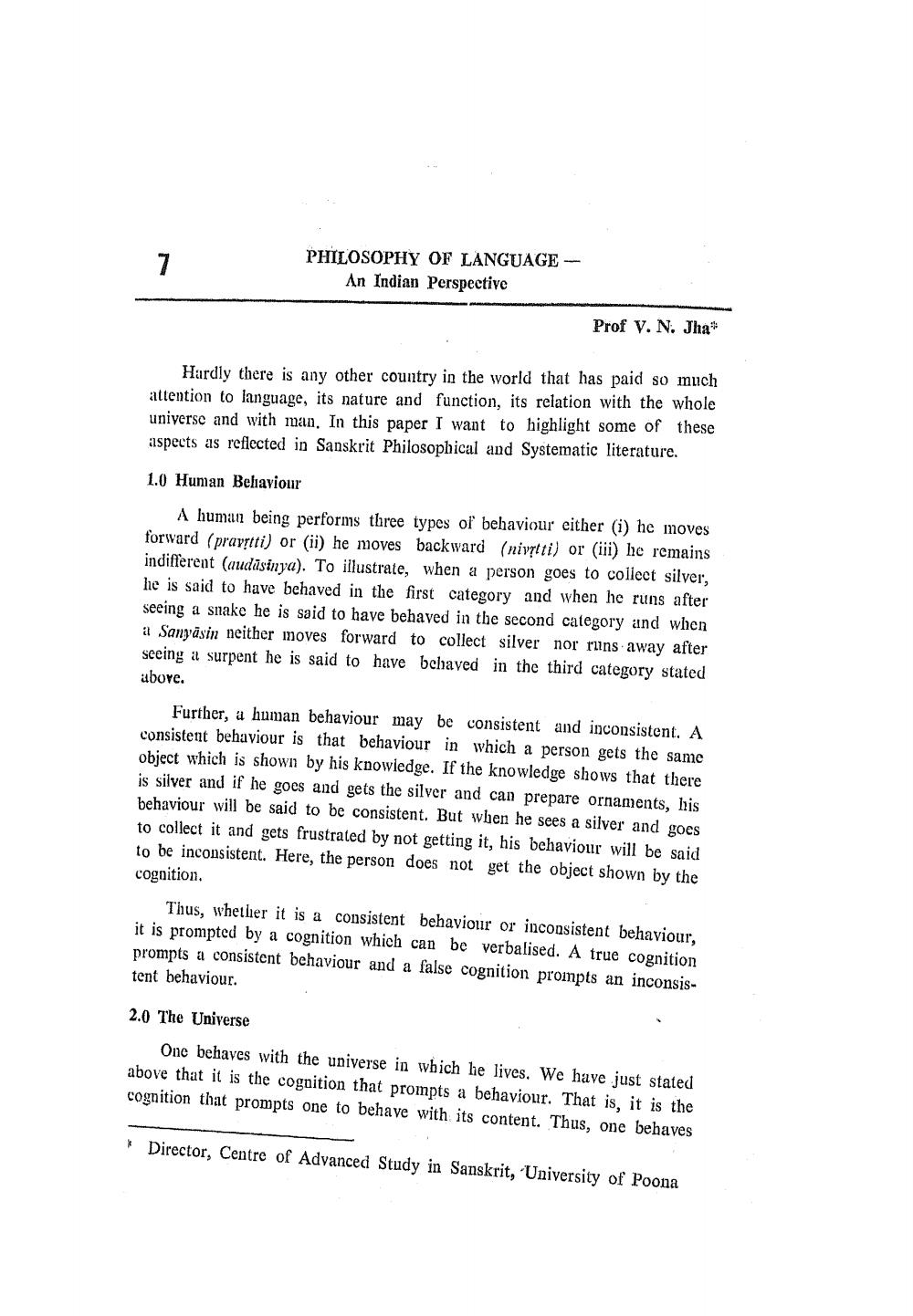________________
PHILOSOPHY OF LANGUAGE -
An Indian Perspective
Prof V. N. Jha"
Hardly there is any other country in the world that has paid so much attention to language, its nature and function, its relation with the whole universe and with man. In this paper I want to highlight some of these aspects as reflected in Sanskrit Philosophical and Systematic literature.
1.0 Human Behaviour
A human being performs three types of behaviour either (i) he moves forward (pravstti) or (ii) he moves backward (nivịtti) or (iii) he remains indifferent (audāsinya). To illustrate, when a person goes to collect silver, lie is said to have behaved in the first category and when he runs after seeing a snake he is said to have behaved in the second category and when a Sanyasin neither moves forward to collect silver nor runs away after seeing a surpent he is said to have bchaved in the third category stated above.
Further, a human behaviour may be consistent and inconsistent. A consistent behaviour is that behaviour in which a person gets the same object which is shown by his knowledge. If the knowledge shows that there is silver and if he goes and gets the silver and can prepare ornaments, his behaviour will be said to be consistent. But when he sees a silver and goes to collect it and gets frustrated by not getting it, his behaviour will be said to be inconsistent. Here, the person does not get the object shown by the cognition.
Thus, whether it is a consistent behaviour or inconsistent behaviour, it is prompted by a cognition which can be verbalised. A true cognition prompts a consistent behaviour and a false cognition prompts an inconsistent behaviour.
2.0 The Universe
One behaves with the universe in which he lives. We have just stated above that it is the cognition that prompts a behaviour. That is, it is the cognition that prompts one to behave with its content. Thus, one behaves
Director, Centre of Advanced Study in Sanskrit, University of Poona




